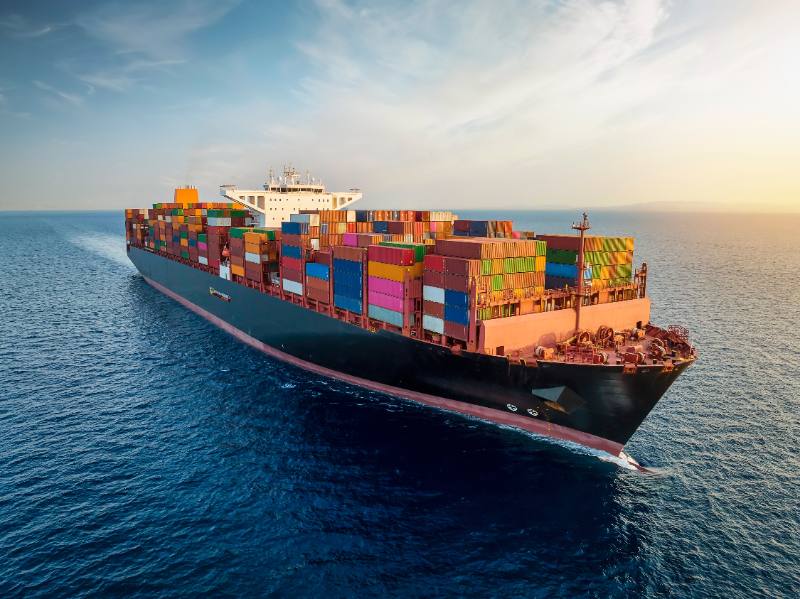
Losing someone at sea brings unimaginable grief and, often, legal uncertainty. When a death occurs beyond U.S. territorial waters, different laws apply. The Death on the High Seas Act (DOHSA) is a federal statute that governs wrongful death claims arising in international waters, offering families a legal path to recover compensation after offshore tragedies.
At the Kolodny Law Firm, we advocate for Texas families who have lost loved ones at sea. With a strong maritime legal practice and a compassionate, client-focused approach, our team is here to support you through every legal step ahead.
What Is the Death on the High Seas Act?
Enacted in 1920, DOHSA provides legal remedies when a person dies due to negligence or wrongdoing more than three nautical miles from the shore of any U.S. state or territory. It applies to incidents involving ships, commercial vessels, cruise lines, and even aircraft traveling over open water.
The Death on the High Seas Act is especially relevant to offshore workers, crew members, cruise passengers, and aviation passengers whose lives are lost while traveling or working in international waters.
Who Can File a Claim Under DOHSA?
Only specific family members may file a wrongful death claim under this law. The right to recover damages for a death depends on the claimant’s relationship to and financial dependency on the deceased.
Eligible individuals may include:
- The surviving spouse of the deceased;
- Biological or adopted children;
- Surviving parents (if no spouse or children exist); and
- Dependents who relied financially on the deceased for support.
Claims must show that the death was caused by a wrongful act, neglect, or default occurring beyond the three-mile territorial limit.
What Situations Fall Under DOHSA?
DOHSA applies to many fatal accidents that occur offshore. The law does not require the decedent to have been a maritime worker.
Common examples of qualifying events under DOHSA include:
- Oil rig explosions in the Gulf of Mexico;
- Cruise ship accidents or onboard medical negligence;
- Cargo ship sinkings or collisions;
- Helicopter or aircraft crashes over international waters; and
- Mechanical failures or fires aboard vessels.
If the fatal incident happened within three nautical miles of shore, state wrongful death laws may apply instead of DOHSA. The attorneys at the Kolodny Law Firm are prepared to analyze your loved one’s situation to determine the appropriate jurisdiction for your case.
What Compensation Is Available Under DOHSA?
The act only allows for recovery of pecuniary damages. This means that only financial losses directly related to the death are compensable.
Family members may be able to recover:
- Loss of financial support—income the decedent would have contributed to the family;
- Loss of household services—such as caregiving, cooking, or home maintenance;
- Funeral and burial expenses—if paid by the family; and
- Loss of inheritance—where the decedent’s early death deprived survivors of future assets.
Pain and suffering, emotional trauma, or loss of companionship are not recoverable under DOHSA. However, other federal or state laws may supplement these damages in some cases. Our legal team can help identify all avenues for recovery.
What Is the Difference Between DOHSA and the Jones Act?
If your loved one was a maritime worker, you may wonder about the difference between DOHSA and the Jones Act. These federal laws serve different purposes but may overlap in some cases.
Here is an overview of the key distinctions:
- DOHSA. This law applies to any wrongful death on the high seas, regardless of the victim’s employment status. It provides remedies for family members of passengers and workers alike.
- The Jones Act. This law applies specifically to seamen who spend significant time working aboard vessels. It allows injured workers (or their families, in fatal cases) to sue their employer for negligence or unseaworthiness.
A single case may involve both statutes. For example, if a seaman dies while working offshore, their family may pursue claims under both DOHSA and the Jones Act, depending on the facts of the situation.
How the Kolodny Law Firm Can Help After a Maritime Death
At the Kolodny Law Firm, we understand the heartbreak and legal confusion that follows a death on the water. Our team is deeply familiar with maritime law and committed to pursuing justice for grieving families.
When you work with us, we will strive to:
- Investigate your loved one’s cause of death and preserve key evidence;
- Determine whether DOHSA, the Jones Act, or Texas law applies;
- Calculate full financial losses under applicable law; and
- Fight for every dollar of compensation available.
You will never pay us out of pocket—we handle every wrongful death claim on a contingency fee basis. That means we only get paid if we recover compensation for you.
Our attorneys are based in Houston and have represented families in complex offshore claims involving oil rigs, cruise ships, and fatal aviation incidents. We are experienced, aggressive, and here to listen.
Speak with a Texas Maritime Attorney Today
Understanding your rights under the Death on the High Seas Act starts with the right legal guidance. At the Kolodny Law Firm, we have the knowledge, resources, and compassion to help you take the next step toward justice.
Contact us today to schedule a free consultation with a Houston maritime attorney who can explain your options under DOHSA. If your case involves international waters, let us help you navigate the law and hold the right parties accountable.

